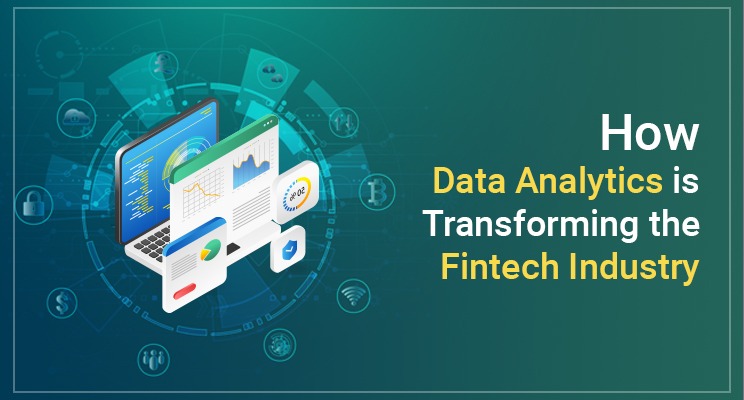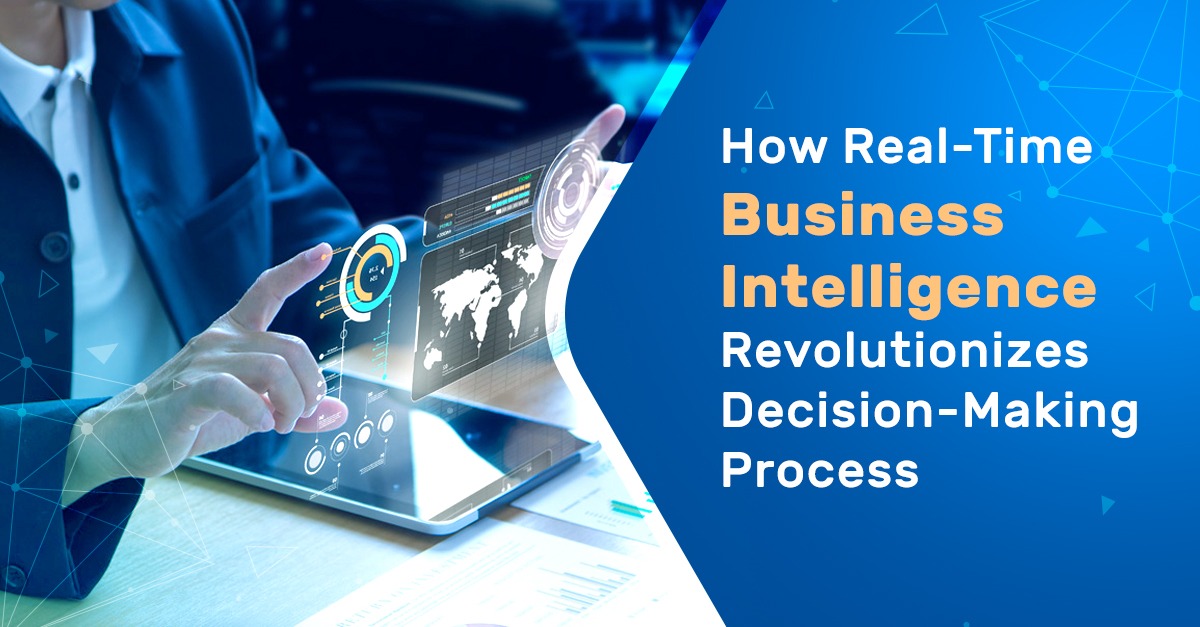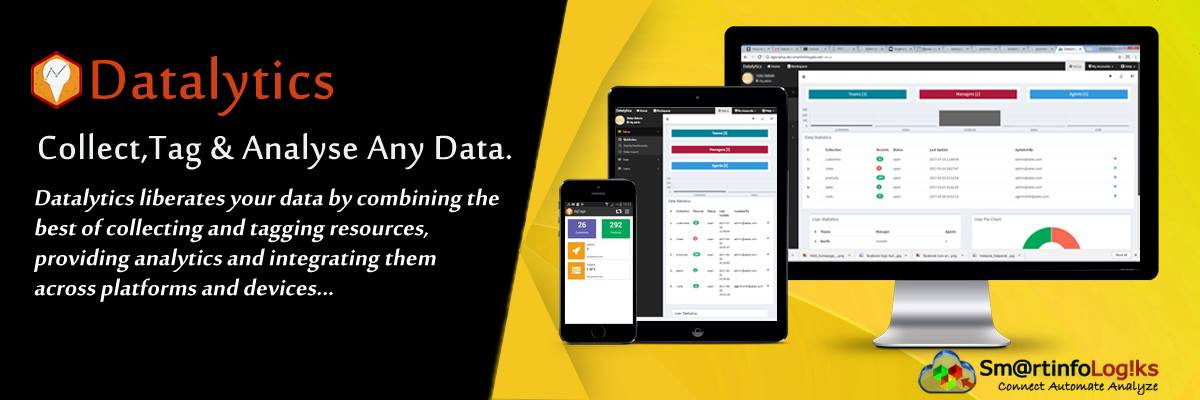
Table of Contents
- Introduction
- What is Data Analytics
- How Does Data Analytics Help Fintech Institutions
- Challenges of Data Analytics Before Fintech
- Mesmerizing Benefits of Data Analytics in Fintech
- Definitive Analytics Use Cases in Banking and Financial Services
- The Usefulness of MIS Reports in the Fintech Industry
- Conclusion
Introduction
Uncover new opportunities for hyper-personalization!
Of all the elements contributing to the booming future of fintech, data analytics has a pivotal role to play. It empowers fintech companies to drive quick and precise decisions to serve their customers better.
In the present scenario, data analytics has become an integral tool for the financial industry. The perfect combination of big data and analytics, machine learning, and artificial intelligence is transitioning the way financial institutions are operating. It is evolving as a vital component of the financial industry, particularly in fintech. Fintech companies are pioneering the development and presenting novel as well as innovative avenues to integrate data analytics and enhance their services.
Right from developing hyper-personalized social media campaigns to augmenting customer engagement, fintech, and big data analytics are working in collaboration to build power relationships with customers.
Fintech enterprises are discovering enticing opportunities for big data analytics to disrupt established financial firms with a customer-centric approach. They are integrating data analytics insights into their operations to develop personalized customer experiences.
What is Data Analytics?
Data analytics is a practice of collecting, analyzing, and interpreting data to spot patterns, insights, and trends. Considering the financial industry, it can help companies make informed decisions, mitigate risks, and identify growth opportunities.
Data analytics has become more frequent in recent years, thanks to the massive amount of data generated by financial transactions. Fintech companies employ data analytics to acquire insights into customer behavior, market trends, and other vital data points.
How Does Data Analytics Help Fintech Institutions?
Fintech companies employ data analytics to enhance their service in multiple ways. One of the most compelling benefits of it is in Fintech is the capability to personalize services. By analyzing data concerning customer behavior, fintech companies can build customized services and products that live up to customers’ needs.
Data analytics can further help mitigate risk in the financial industry. Fintech companies that provide lending services, for instance, employ data analytics to evaluate the creditworthiness of applicants. By analyzing data about the borrower’s financial history, encompassing credit score, income, and employment status, the lender can regulate the likelihood that the borrower is likely to repay the loan.
Another enticing way fintech companies use data analytics is to spot new marketing opportunities. By analyzing customer behavior and trends data, fintech companies can spot any gaps in the market and create new products and services to bridge those gaps.
Besides, it enables fintech institutions to analyze a vast amount of data to assess the creditworthiness of individuals seeking loan consolidation. This involves assessing their credit history, and income, debt-to-income ratio, and other relevant financial factors. Predictive analytics models can help in forecasting the likelihood of default or late payments, helping in better risk management.
Challenges In Implementing Data Analytics
While data analytics offers a few compelling benefits to fintech companies, there are also significant challenges to its implementation.
- One of the most significant challenges is the arduous amount of data that needs processing and analysis. Fintech companies must possess the infrastructure and tools to manage and analyze huge volumes of data.
- Besides, data privacy and security are major concerns in the financial industry. Fintech companies need to collect and analyze data, thereby making sure the privacy and security of their customers’ information.
- Another major challenge of data analytics in fintech is the requirement for skilled professionals to manage and analyze the data. Fintech companies must possess data scientists, analysts, and other respective professionals with apt skills to analyze and interpret data precisely.
Mesmerizing Benefits of Data Analytics in Fintech
Data Analytics serves multiple benefits to fintech companies.
- It allows fintech companies to develop more personalized services and products. Through analyzing data on customer behavior, fintech companies can acquire insights into what their customers require and create tailored solutions to cater to those needs.
- Data analytics further assist fintech companies in enhancing their risk management practices. By employing data to evaluate creditworthiness and other risk factors, fintech lenders can minimize their exposure to bad debt and other losses.
- Yet another compelling benefit of data analytics in fintech is enhanced fraud detection. Fintech companies that provide digital payment services and other financial products are vulnerable to fraud. It can help identify patterns of fraudulent behavior, thereby helping companies to take proactive steps in order to prevent fraud and guard their customers’ assets.
- Data analytics can further help companies spot novel market opportunities. By analyzing consumer behavior as well as market trends, firms can identify areas of demand for new products and services. It can accelerate growth and revenue for the firm.
- Data accuracy in the fintech industry, when coiled with analytics, extends crosswise various facets of the business, from decision-making and risk management to customer insights. It’s a fundamental element for the success and sustainability of fintech operations.
Definitive Analytics Use Cases in Banking and Financial Services
1. Credit Modeling
Credit risk modeling is not a new phenomenon in the banking industry. The traditional risk analytics models offered insights on the basis of income sources, loan history, default areas, credit rating, demographics, etc. Let us take into account the consumer loans case; varying dynamics such as social media profiles, utility bills, monthly spending, and savings deliver more profound insights into the default risk. Unstructured data plays a pivotal role in credit risk modeling. AI-based text analysis coupled with consumer persona offers deeper insights into the customers’ financial well-being.
2. Risk Monitoring and Analysis
Banks and financial services organizations that execute robust risk models with advanced analytics are more resilient to essential external changes. The most common risk for most financial services companies is fraud detection is persistently emerging. Machine learning, AI, and big data now allow organizations to analyze many transactions. Social media profiles, behavioural analytics, predictive analytics, and advanced machine learning models can collectively help in fraud detection.
3. Customer Lifetime Value
The most trickiest one, but appears like the simplest one to understand for someone from a banking perspective. Customer lifetime value offers insights into the future revenue sources from the customer to emphasize marketing efforts and minimize churn. AI-powered advanced models identify patterns more efficiently in the data to offer behavioural insights that humans might fail to identify.
4. Product Recommendation Engine
Product recommendation engines are emerging in banking, too. Different comparison sites are now available for every financial services product- loans, insurance, mutual funds, credit cards, etc. Consumers can formulate informed decisions, however, cross-selling financial products at the right instance caters to consumer needs and improves trust.
5. Customer Segmentation
Understanding every facet of the customer is vital for personalization. Customers are now attacked with multiple financial products at the same moment. The place and timing of your marketing efforts matter the most in developing trust and displaying intent to act on the marketing messages. You can even minimize awareness marketing efforts if you deliver that knowledge at the right phase of the buyer journey.
The Usefulness of MIS Reports in the Fintech Industry
MIS reports play a crucial role in the fintech industry by offering valuable insights and facilitating informed decision-making. Here are a few ways in which MIS reports are helpful in the fintech industry.
Data Analysis and Trend Identification
MIS reports help in analyzing huge amounts of financial data quickly and precisely. It helps in identifying trends, patterns, and anomalies in financial transactions, customer behaviour, and market conditions.
Risk Management
Fintech companies often deal with different types of financial transactions, and risk management is vital. MIS reports help assess and manage risks by offering a sophisticated view of financial activities and potential threats. Real-time monitoring and reporting on risk indicators allow prompt decision-making to mitigate potential losses.
Customer Insights
Fintech companies often deal with massive customer data. MIS reports help in extracting valuable insights into customer behaviour, preferences, and demographics. Analyzing customer data can lead to personalized marketing activities, product development, and custom engagement initiatives.
Operational Efficiency
MIS reports have a fair share in enhancing operational efficacy by offering visibility into different processes and workflows. It helps in identifying bottlenecks, streamlines operations, and optimizes resource allocation based on insights acquired from MIS reports
MIS reports are invaluable in the fintech industry, offering a foundation for data-driven decision-making, improving operational efficiency, and making sure compliance with regulatory prerequisites.
Conclusion
Thanks to its technological foundation, data analytics is presenting profit-generating opportunities for the fintech sector. It’s empowering innovators to further hundreds of digital and technology industries, developing novel sources of profit and optimized customer experiences. Hence, shaping the way we dwell. Data analytics in fintech has been successful in incubating the sector and is persisting to expand.
With the amount of data generated by financial transactions multiplies, fintech companies must persist in capitalizing on data analytics to be competitive. Overcoming the challenges of executing data analytics will be pivotal to their success. While, doing so can help fintech companies to innovate and provide novel and inventive solutions that cater to the emerging needs of consumers.
Leverage Smartinfologiks’s Analytics 101– transforming the way financial services are delivered, accessed, and managed. Leveraging Analytics 101 MIS reports and KPI-based analytics, enable fintech companies to make informed decisions based on data. By analyzing huge amounts of financial data in real time, these companies can identify trends, assess risks, and make strategic decisions that accelerate their business forward.
Want to know more about how data analytics is transforming the fintech industry, reach out to Smartinfologiks, today!


